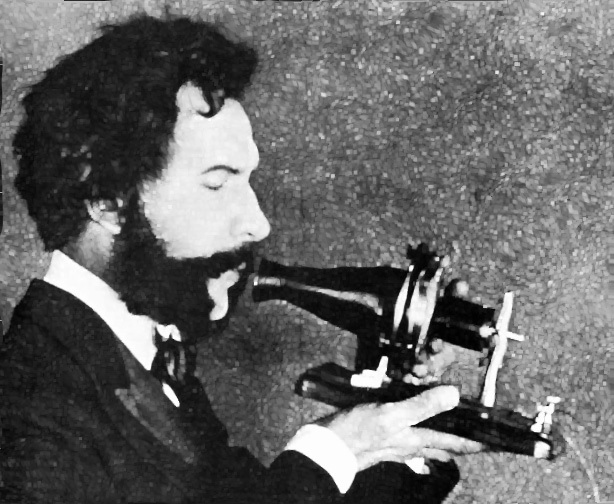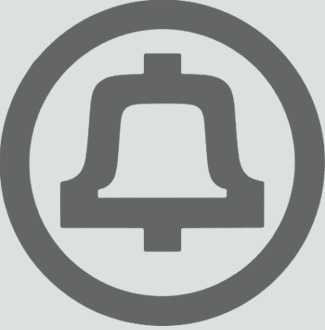Telecom Informer
by The Prophet
Hello, and greetings from the Central Office! It's truly "central" this time - I'm writing to you from Costa Rica, in Central America, where I'm sitting on the beach. The wind is wafting through the palm trees, and the Wi-Fi is strong - better and faster on this public beach than at the fancy resort where I'm staying. This is, of course, "business" travel so I'm certain to expense everything I can!
Why am I using public Wi-Fi rather than mobile Internet? Well, the mobile Internet plans here are an example of what happens without net neutrality. In the early 2000s, this was one of the most controversial issues in front of state legislatures, the federal government, and the FCC. Back then, companies like Facebook and Google were the underdogs, while big bad ISPs like AT&T, Verizon, and Comcast had the upper-hand.
The threat wasn't theoretical, and Comcast was the most aggressive player. ISPs, not satisfied with only the revenue they were getting from subscribers, wanted to charge on both ends by billing Internet services for access to their subscribers. One day, Netflix effectively ceased to operate for Comcast subscribers when Comcast cut off peering with the company, reducing connectivity only to that which was available at the Commercial Internet eXchange (CIX) public exchange point. This pushed Silicon Valley lobbyists into overdrive, pushing for net neutrality legislation at both the state and local level as well as at the federal level.
There is a long Wikipedia article on the back-and-forth battles over net neutrality, and it captures the highlights. I won't repeat it here; it's linked in the references below. Since 2008, there have been various forms of net neutrality in the U.S. This very nearly ended in the waning days of the Trump regime, but was reversed by executive order in the early days of the Biden administration. The legal status, however, is still being hashed out in courts, many of which are stacked with Trump-appointed judges. It is anyone's guess what the future of net neutrality looks like in the U.S.
Back to the state of the Internet in Costa Rica, where there is no net neutrality. Internet service providers are free to charge both subscribers and service providers. They can provide preferential network access to service providers at higher prices. They're also allowed to perform "network management," which allows them to slow down the performance of sites such as Netflix and YouTube unless either subscribers, video streaming platforms, or both pay an additional fee for full-speed streaming.
Mobile providers are also allowed to discriminate in how they bill for data. In practice, mobile providers split up the Internet by the apps you use, and bill for each app differently. For example, Movistar offers a "Super Recharge Plus 4500" plan which costs about seven dollars. It allows unlimited usage of YouTube (at throttled 720p speeds), plus WhatsApp, Facebook, Instagram, Twitter, and Waze. You also get an additional 2 GB of data to use with all other apps (and this gets confusing, because while YouTube and Waze are in your "unlimited free" data allowance, Google Maps and Google Photos are not).
O.K., that's all fine and good, but what if you need to work remotely? 2 GB obviously isn't going to cut it when you're on video conferences all day. Well, Movistar will sell you a remote collaboration package offering 10 GB of data for use across a wide variety of popular commercial video conferencing platforms, but not including the open-source Jitsi video conferencing app. Of course, that's an additional three dollars, but it's good for 30 days. But wait, you need to listen to music too? Movistar offers another three dollar package for unlimited access to Spotify, SoundCloud, Apple Music, Deezer, Amazon Music, and Google Music. But only those apps, and not other popular music apps such as di.fm or last.fm.
It's important to note that app-based data allowances only apply to data usage of applicable services within the mobile apps, not via their websites. So, if you buy a remote collaboration package and share out your phone's Wi-Fi to use a video conferencing app on your laptop, it won't count against the 10 GB allowance. It'll instead count against your basic data allowance. The same applies to using Facebook via the mobile website versus via the Facebook app. It's difficult to know which data bucket is being used for what and when, because detailed billing information isn't available. Movistar just gives you a balance of what you allegedly used, and that's it.
In case anyone thinks I'm beating up on Telefónica and its Movistar division, I'm totally not. All of the carriers in Costa Rica operate different variations of the same theme: generous, or even unlimited, data allowances for apps with whom the carrier has a business partnership and limited, expensive data allowances for everything else. But "everything else" includes stuff like Signal, and my employer's VPN. Because of the Balkanization of the Internet here, and the lack of net neutrality, I'm stuck hunting down public Wi-Fi if I want to use anything other than specific mobile apps, because it's not reasonably possible to purchase a large enough data allowance for competing mobile apps, VPNs, or anything else. Pure Internet data is sold in four dollar, one gigabyte increments and you can't stack the packages, so it means lots of service interruptions.
So far, wired and fixed wireless Internet services aren't sliced up by app. Carriers employ opaque "network management" software, which slows down services such as BitTorrent, but this is easily circumvented via VPN. Fixed-location Internet services are, however, very expensive relative to the local economy. 100 Mbps ADSL service from Kolbi, the national ILEC, costs around $48 per month (plus tax). There are less expensive speed tiers (for example, 1 Mbps for $15.50 per month), but the price per megabit is far more with the lower speed packages versus the upper-tier packages.
And with that, I'm finished downloading the several gigabytes of firmware updates I need to apply to various pieces of equipment here in-country. Have you noticed just how huge these updates are getting? But don't tell my boss - I'm feigning Internet struggles in order to stretch out my visit as long as possible!
I'll see you again in the spring. Stay safe, and use as many "forbidden" services as you possibly can before Silicon Valley (((oligarchs))) and the ISPs who love them squeeze open-source applications entirely off of the Internet.
References

